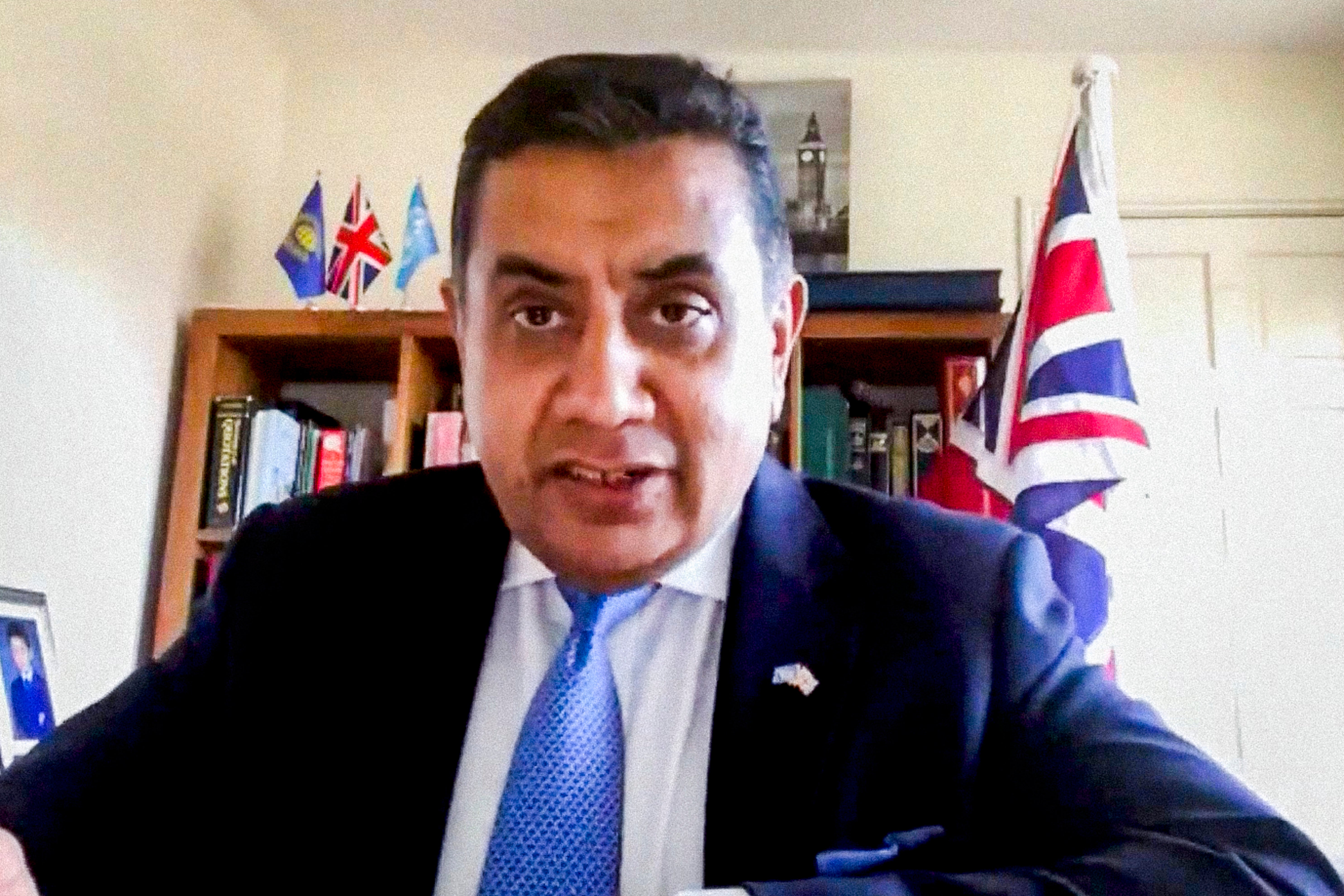COVID-19 can't crush human rights, UN gathering declares
In a diminished spotlight caused by the COVID-19 pandemic, leading human rights defenders are urging people in these fractured times to connect through politics — and vote, too

Your support helps us to tell the story
From reproductive rights to climate change to Big Tech, The Independent is on the ground when the story is developing. Whether it's investigating the financials of Elon Musk's pro-Trump PAC or producing our latest documentary, 'The A Word', which shines a light on the American women fighting for reproductive rights, we know how important it is to parse out the facts from the messaging.
At such a critical moment in US history, we need reporters on the ground. Your donation allows us to keep sending journalists to speak to both sides of the story.
The Independent is trusted by Americans across the entire political spectrum. And unlike many other quality news outlets, we choose not to lock Americans out of our reporting and analysis with paywalls. We believe quality journalism should be available to everyone, paid for by those who can afford it.
Your support makes all the difference.In a diminished spotlight because of the COVID-19 pandemic, leading human rights defenders on Friday urged people in these fractured times to connect through politics — and vote, too.
“In many places around the world, participation is being denied and civic space is being crushed,” United Nations Secretary-General Antonio Guterres said on the sidelines of the annual U.N. gathering of world leaders, this year held online.
People must take part in the decisions that affect their lives, he said, noting “new heights” of inequalities and and warning: “The window to address climate change is almost shut.”
In the cautious language of diplomacy, no names were named, no governments called out. But around the world, the crack of batons and the tang of pepper spray have been common as some authorities are accused of using the cover of COVID-19 restrictions to commit abuses and limit free speech.
In Venezuela, advocates said quarantine was used to erode civil liberties. In Kenya, watchdogs said police enforcing curfew beat or shot dead civilians including a 13-year-old boy.
People must push back even in this socially distanced world, speakers said.
U.N. human rights chief Michelle Bachelet warned of a “crisis of governance” and a marginalization of voices that she said will only deepen grievances and harm all of society.
“We are witnessing an erosion of public trust in institutions and traditional politics,” said Eamon Gilmore, the European Union’s special representative for human rights.
Young people in particular are feeling increasingly insecure, he said. Economies are crumbling in the pandemic, erasing job opportunities, and millions of students are unable to return to school.
Speaking up for youth, the founder of Action for Justice and Human Rights in Liberia, Satta Sheriff, told the gathering that people like her should not be seen as simply waiting for an empty seat at the table.
Youth in the West African nation successfully pressed the government to declare rape a national emergency after days of peaceful protests, she said. Despite that win, access to decision-making spaces remains limited for youth, who face the “stereotype of constantly being labeled troublemakers,” she said.
Such frustration is especially potent in Africa, with the world’s youngest population and a median age of 19. The continent’s population is expected to double by 2050, and already a small corps of young opposition leaders in places like Uganda is challenging heads of state who have spent years, even decades, in power.
The COVID-19 pandemic is a crucial chance for governments to fight the urge to impose repressive measures and instead win the trust of citizens that's key to combating the spread of the virus, speakers said.
“It’s the good governance” that has kept Latvia’s confirmed virus case rate relatively low compared to the rest of Europe, said the country’s ambassador to the U.N., Andrejs Pildegovics. South Korea’s ambassador, Cho Hyun, agreed, citing people’s voluntary wearing of face masks in his country’s relative success in containing the virus.
As scores of heads of state this week are making urgent calls to band together to fight the crises of COVID-19, Friday’s speakers on human rights stressed that governments must open the political space for everyone.
As the global toll closed in on 1 million deaths, the U.K.’s minister for human rights, Lord Ahmad of Wimbledon, reminded listeners: “It’s only over when it’s over for all of us.”